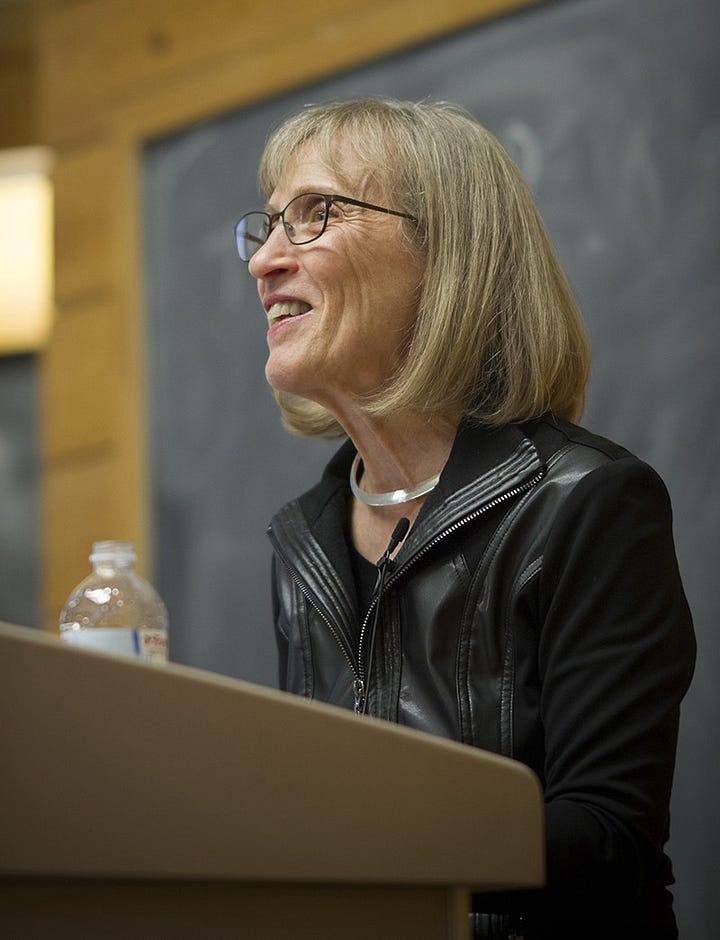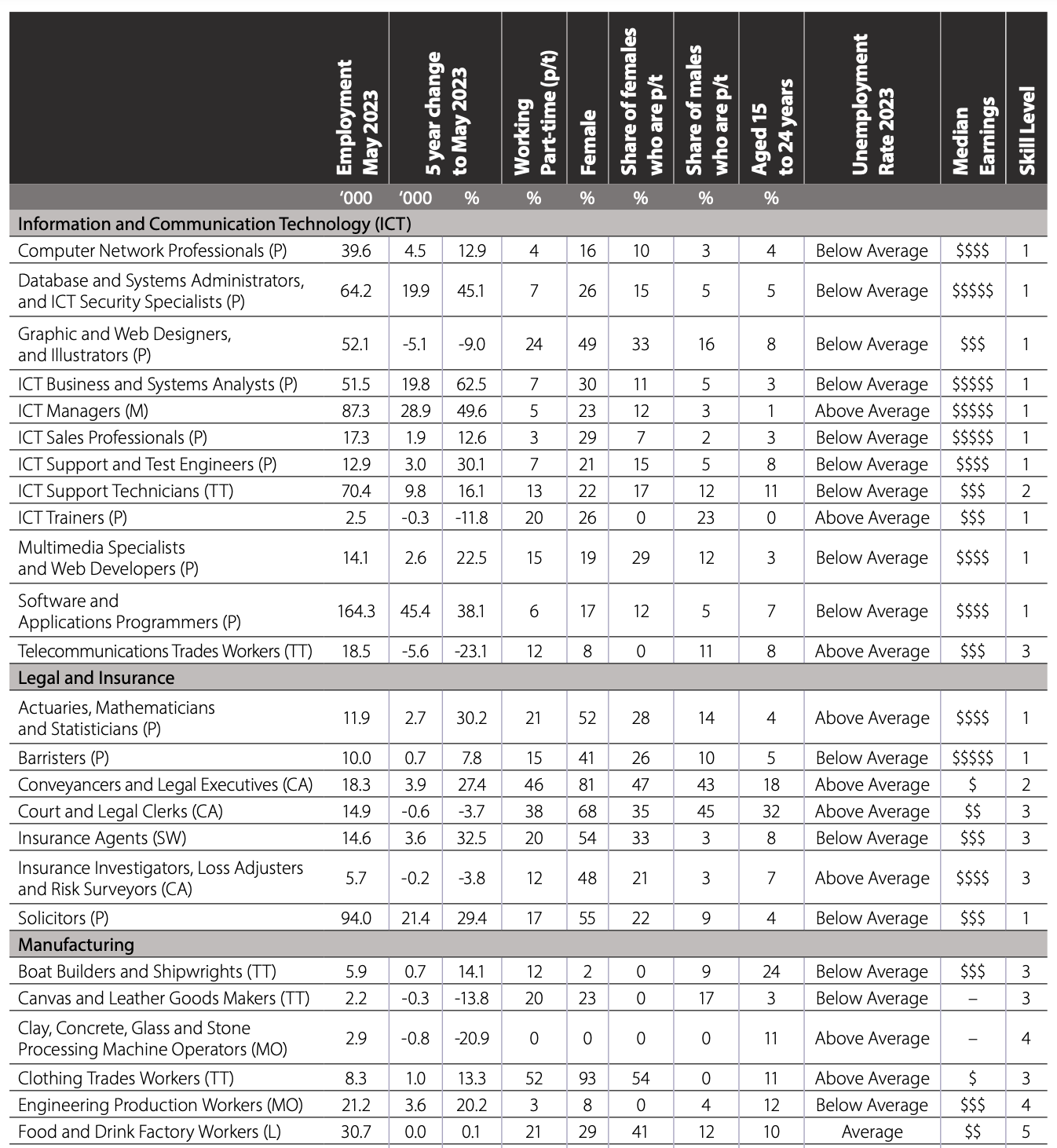🔍 Career Strategy #4: Niche-ing
And how taking the road less travelled can lead to outsized success.
Welcome back to Fuzzy’s Career Strategy Series, where we share research-backed strategies to help you realise your best career.
Part 1: 👋 Introducing the Career Strategy Series
Part 2: 🪜 Ladder Climbing as a Strategy
Part 3: 👩🎓 Controlled Supply as a Strategy
Part 5: 🔍 Niche-ing as a Strategy
Part 6: 🧱 Skill-stacking as a Strategy
Part 7: 👷 Be A Generalist as a Strategy
Part 8: 📊 The Portfolio Career as a Strategy
Part 9: 📣 Building a Platform as a Strategy
Part 10: 🌊 Wave-surfing as a Strategy
Part 11: 🏗️ Adding Leverage as a Strategy
Part 12: 🌏 Proximity as a Strategy
Part 13: ⏱️ Sequencing as a Strategy
Part 14: 🧪 Optimising for Discovery as a Strategy
Part 15: ⚡ Do What Gives You Energy as a Strategy
Part 16: 💹 Arbitrage as a Strategy
There are thousands of possible pathways for your career, but our research found there are ~10-15 dominant career strategies, which can be layered together if needed - and we’ll be breaking those down for you in this series.
We started this series covering more traditional, well-known strategies like ladder-climbing, controlled supply and outworking the competition - and beginning this week, we’ll explore more innovative strategies.
🔍 Introducing Strategy #4: Niche-ing
Do you know who these people are?


If not - you’re not alone!
Unlike many leaders in their fields, they’re not instantly recognisably faces or household names.
But they’ve achieved profound impact and success in their careers.
On the right is Judy Faulkner: one of America’s richest self-made women who turned a $70,000 initial investment into a net worth of over $8 billion via her company Epic Software.
On the left is Professor Claudia Goldin: one of the first women ever to win a Nobel Prize in Economics.
And they’re both great examples of using niche-ing as a career strategy 🔍
Read on for breakdowns of their journeys - but first, let’s explain the strategy.
Two roads diverged in a wood, and I—
I took the one less traveled by,
And that has made all the difference.
Robert Frost
❓What is niche-ing?
Finding a valuable, neglected niche (often perceived as ‘unglamorous’) and becoming great at it.
There are a few careers that every teenager can name - like doctor, professional athlete, lawyer, entrepreneur and of course, YouTuber.
Aaaand on the other hand…
There are a huge number of ‘unsexy’ industries and job titles that create huge value by solving important problems, but are not widely represented in our pop culture, and don’t attract a lot of talent 💔
Finding a valuable niche is living your career on easy mode.
Why? Low competition + high value creation = better remuneration.
In a neglected niche, you face limited competition from other latent.
This means you have more ability to set a high price for your services, in terms of money, lifestyle and whatever else you value 🌴
In fact, niche-ing is the opposite of the power law dilemma we described last week - where you try to outwork the competition in a hyper-crowded field 🥇
👀 What can a niche career look like?
Niche-ing can take many forms, but a few common ones are:
💭 Entering a high-value, low-awareness field, like becoming an actuary, a process engineer, a historical restoration architect, a trained operator of a specific kind of machinery, an import-export specialist for a particular good, and so on.
📈 Starting a business that ‘owns’ a neglected niche - like safety certifications for the mining industry, or visas for the tech industry.
👩🎓 Focussing academic work on an emerging niche which hasn’t received significant attention before - instead of trying to come up with new answers to ‘mainstream’ questions everyone else is focussing on.
🛣️ So how do people actually end up in niche careers?
Bottom-up discovery not top-down inspiration.
Valuable niches are often discovered via direct exposure, like:
Knowing someone socially or professionally who understands the field,
Stumbling upon an unmet need while working on something adjacent,
Inbound recruiting by an employer looking to attract more talent, or
Taking a structured approach to breaking your career bubble and discovering a promising niche.
See the end of this post for a how-to guide on accelerating discovery!
Case study: Judy Faulkner, founder of Epic Software 🏥
Judy Faulkner is a great example of discovering a neglected need firsthand by being in a valuable niche - and becoming the best at meeting that need.
Faulkner founded Epic Systems, a healthcare software company, in 1979.
While working as a computer programmer at a medical institution (not typically seen as a high-demand or glamorous profession!), Faulkner noticed that medical records were being managed inefficiently using paper files.
She saw the potential to digitise medical records to enhance data accessibility, improve patient care, and streamline operations - and was able to found Epic with an initial investment of $70,000 from family and friends.
She built the company's software from scratch in a basement in Wisconsin, focusing on a user-friendly, integrated system that allowed healthcare providers to track patients' medical histories and streamline admin.
Over the next few decades, Epic grew steadily to become an industry leader in electronic health records (EHR) systems, valued at around $45 billion today.
💥 Why niche-ing can also have huge positive impact
Academic research can have enormous positive impact, through making scientific discoveries and deepening our understanding of ourselves. And it’s a domain where effective niche-ing can change the world.
When people first focus on a field or a problem, there will be many big questions still to be answered - and there will initially be a rush of progress made as the major ‘building blocks’ of fact and frameworks are laid down.
But over time, knowledge creation is also subject to the law of diminishing returns - perhaps the 1st, 5th and even 10th paper on a topic significantly add to it, but the 100th or 1,000th do not add as much.
And so the pace and scale of discoveries being made eventually slows, and people find themselves doing work which focusses more on synthesis, small extensions to an academic literature and re-litigating old debates.
If faced with the choice of adding one more paper to the pile on a ‘mainstream’ topic, or pursuing a promising but neglected niche, targeting a promising niche may allow you to have a bigger impact, because the ‘low hanging fruit’ of discoveries and theory to be made is still ‘on the tree’ 🍏
Like Claudia Goldin…
Case study: Claudia Goldin 🏆
When awarding Claudia Goldin the Nobel Prize in Economics in 2023, the Nobel Committee wrote:
This year’s Laureate in the Economic Sciences, Claudia Goldin, provided the first comprehensive account of women’s earnings and labour market participation through the centuries. Her research reveals the causes of change, as well as the main sources of the remaining gender gap.
Claudia Goldin is an influential American economist known for her pioneering work on gender economics and labor markets. Her research focuses on understanding the role of women in the economy, especially how gender differences in earnings, labor force participation, and career progression have evolved over time.
In 2024, understanding how over 50% of the population interact with the economy seems like a pretty important topic.
But when Goldin first studied economics in the 1970s, topics like the gender pay gap, and women’s labor force participation were traditionally seen as unimportant or marginal within mainstream economics.
Effectively, gender economics was seen as a ‘niche’ or backwater topic - not something to build a successful career upon 🤦♀️
But by choosing to enter what was seen as a ‘niche’ instead of a crowded topic, Goldin was able to make enormous contributions which shaped the field, and ultimately have an outsized positive impact through her work.
Super nerd? You can read more here about Goldin’s work here, here and here.
Putting it into practice: how to find a good niche 💡
People often stumble into direct discovery of a niche - and in taking a structured approach, you want to increase your likelihood of stumbling successfully and break out of the ‘bubble’ of careers you know.
Start with a self-audit: list out all the careers & job titles you know.
Compare it with a wide range of guides which can expose you to other careers and broaden your list of possibilities e.g.
The Australian Government’ Jobs Report (tables at the end cover 350 professions with income, age mix, gender mix, growth trends & more
Understand the ‘pools of value’ in the economy better, and get perspective on how small the pool you swim in is!
There are many ways to do this, but here’s one example: Google ‘Australian Economy GDP By Industry’, find the biggest organisations within those sectors, and go to their websites’ careers pages. Look at all of the roles they’re hiring, and dive in to the descriptions - which ones feel like they could fit with your inclinations?
Look within your network for people with interesting careers, and ask how they ended up there - but don’t rely only on your network!
Ask as many people as you can about what their biggest problems are. You might find someone tells you they need a better leasing agent, or that they’re paying a crazy amount to get their braces done, or that they just can’t seem to hire for a specific type of role.
Finally, check your blindspots: we are more likely to empathise with problems closer to our own experience, and miss opportunities.
From preferring to B2C (business-to-consumer) over B2B (business-to-business) startups, to neglecting problems faced by under-served groups like women, people with disabilities & people of colour, great talent can easily get misallocated - so make sure you’re taking extra steps to expose yourself to experiences beyond your own!
Found this helpful?
We created this series to help everyone realise their best careers, and we’d love you to share it with your friends, family, colleagues and networks 📣
Keen for more? Check out the other posts in the series 👇
Part 1: 👋 Introducing the Career Strategy Series
Part 2: 🪜 Ladder Climbing as a Strategy
Part 3: 👩🎓 Controlled Supply as a Strategy
Part 5: 🔍 Niche-ing as a Strategy
Part 6: 🧱 Skill-stacking as a Strategy
Part 7: 👷 Be A Generalist as a Strategy
Part 8: 📊 The Portfolio Career as a Strategy
Part 9: 📣 Building a Platform as a Strategy
Part 10: 🌊 Wave-surfing as a Strategy
Part 11: 🏗️ Adding Leverage as a Strategy
Part 12: 🌏 Proximity as a Strategy
Part 13: ⏱️ Sequencing as a Strategy
Part 14: 🧪 Optimising for Discovery as a Strategy
Part 15: ⚡ Do What Gives You Energy as a Strategy
Part 16: 💹 Arbitrage as a Strategy











Love this read! Another underserved opportunity is our ageing population - age diversity is an aspect of diversity often neglected but we have the greatest demographic mega trends happening. Now.
This is so great! I wrote about something similar in a recent post but instead of labelling this as niche-ing I spoke about it in terms of being a True Specialist; someone with deep expertise in a specific industry, with a specific skillset, that drives a specific outcome ❤️🔥